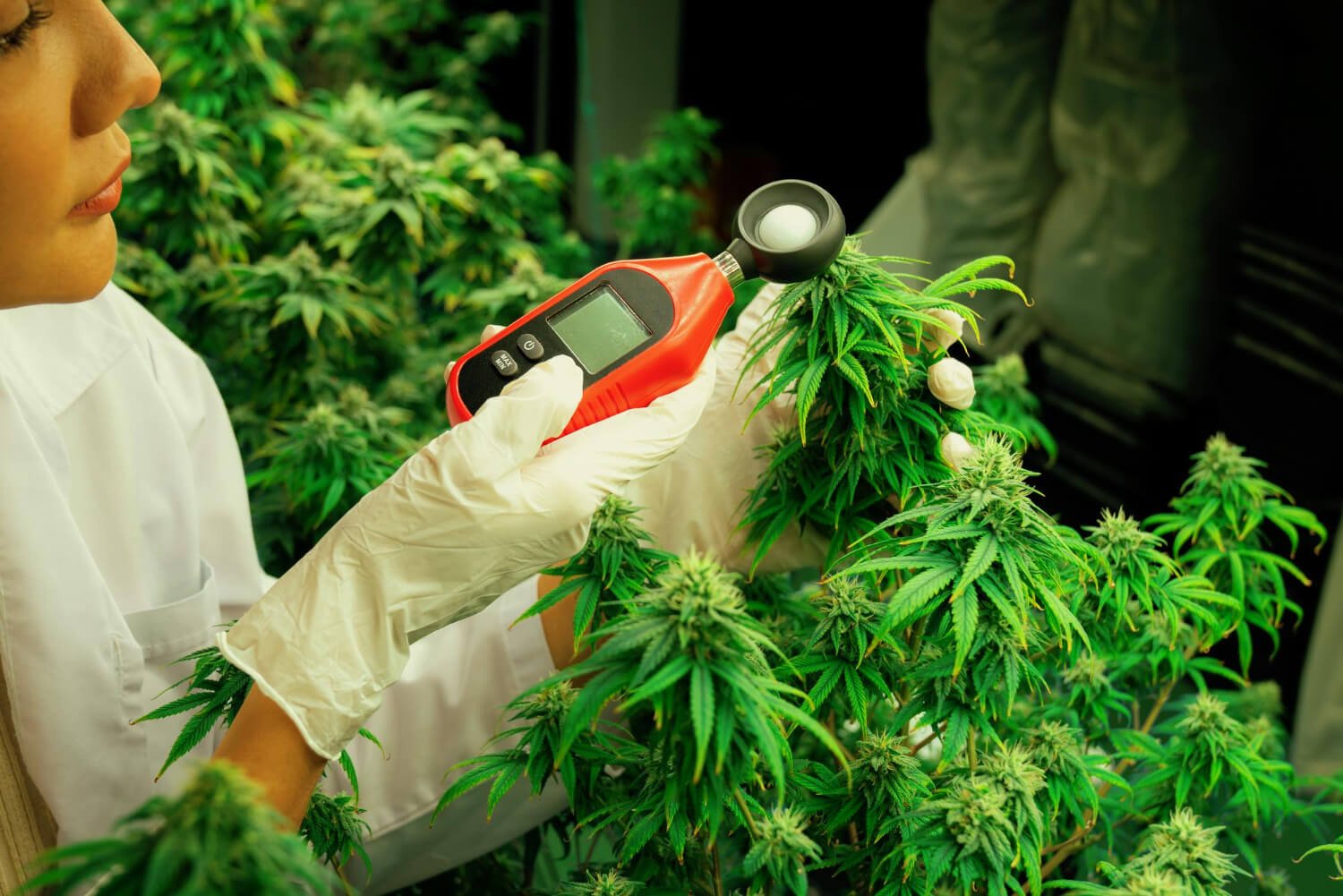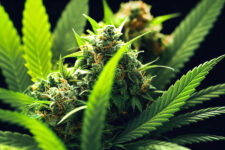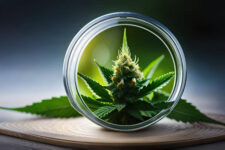Over the last few years, the cannabis plant has been studied extensively. The diverse range of compounds in the plant makes it a popular pick in the research world! Tetrahydrocannabiphorol, or THCP, is the latest addition to the list of cannabinoids. This brief answers the question: what is THCP?
THCP: A Definition
Let us start with the basics; THCP is one of the lesser-known cannabinoids that are found in the cannabis plant. The cannabinoid was first discovered in 2019 and has a very close structural resemblance to the well-known tetrahydrocannabinol compound, well-known for its psychoactive properties.
The major difference between the structures of the two compounds lies in the elongated alkyl side chain that is found in the THCP. It is this structural uniqueness which gives THCP a 33-X receptor binding affinity, in comparison to THC. Hence, the compound is certainly a lot more potent as compared to the THC we have been consuming for such a long time.
How Does THCP Work? The Biochemical Interactions
The effects that are associated with THCP are primarily courtesy of the biochemical interactions that the cannabinoid has with the endocannabinoid system. The endocannabinoid system is found in humans and animals both. It plays a very important role in maintaining various physiological functions; some of these functions include mood, appetite regulation and pain perception.
Once consumed, THCP binds to the CB1 receptors, which are found in the central nervous system in abundant proportions. As we mentioned earlier, THCP’s binding affinity for these receptors is quite high, even more than THC. As a result of the binding event, a cascade of signaling events within the endocannabinoid system. This signaling cascade basically influences neurotransmitter release, which leads to the modulation of sensations and perceptions. And since THCP has a very strong affinity for CB1 receptors, it becomes perfectly clear why THCP exerts such strong effects on mood, cognition and physiological responses. It is quite possible that THCP’s interactions may extend beyond CB1 receptors, and that there may be other components of the endocannabinoid system that are involved in this interaction.
Scientific Studies on THCP
The credit of THCP’s identification goes to the group of researchers led by Dr.Cannazza at the University of Modena and Reggio Emilia. This group of eminent researchers identified this cannabinoid in 2019. The discovery of THCP was something that the scientists had anticipated, given that they were researching the chemical composition of the cannabis plant. The properties of this cannabinoid, especially the fact that the compound had a long sidechain, were immensely intriguing for the researchers.
These findings were first published in the December 2019 edition of the popular scientific journal Nature. Cultivated human cells were used in this study; researchers observed that the seven-atom chain of this compound leads to a greater binding affinity for the CB1 receptor. Researchers also observed similar interactions for the CB2 receptors found in the endocannabinoid system.
Not many studies have been conducted which evaluate the true potential of this amazing cannabinoid. True, some facts have been unearthed regarding the incredible nature of this compound, but mostly, researchers have relied on comparative deduction to understand the potential of this cannabinoid.
Potential Benefits of THCP
Following are some of the potential benefits that the researchers have associated with the THCP.
Pain Management
One area of potential benefit, in fact, one that is so commonly associated with other cannabinoids, is pain management. Cannabinoids have been studied for their potential to alleviate pain, and THCP’s reported potency certainly opens up a door of wondrous opportunities too. As observed in different research studies, the THCP’s interaction with the endocannabinoid system, particularly its strong binding to CB1 receptors, can contribute to enhanced pain relief compared to other cannabinoids such as CBD and THC.
Appetite stimulator
THCP can stimulate appetite, a silver lining for patients suffering from a lack of appetite in different conditions, such as chemotherapy. Cannabinoids like THC are known for their ability to increase appetite; the popular slang for such cannabinoids is MUNCHIES. Well, the cannabinoid under discussion also has certain unique structural properties and has demonstrated a binding affinity with CB1 receptors in particular that could potentially amplify this effect. Hence, it can certainly be investigated further for stimulating appetite.
THCP In Comparison with Other Cannabinoids
Here is a look at how THCP stands in comparison to other cannabinoids that are used by the cannabis community on a frequent basis. For the reference, THC, the most famous psychoactive compound has been selected. Other compounds include THCV, CBN and CBD. As it is apparent from the table, the overall potency of THCP is quite high as compared to the rest of the compounds in the list, even the standard.
| Cannabinoid | Potenty compared to THCP | Main Effects and Uses |
|---|---|---|
| Delta-9 THC | Standard | Psychoactive effects, pain relief, appetite stimulation |
| CBD | Non-psychoactive | Anti-inflammatory, anxiety, relief, potential pain relief |
| THCV | Varied | Potential appetite suppression, mood enhancement |
| CBN | Mild | Potential sedative effects, minor pain relief |
Conclusion: Why Can You Try THCP?
Now that we know what THCP is, just a word about its legal status, which varies from region to region, which makes finding its legal status a complex challenge. While some states are happy to classify it as a controlled substance straightaway, some areas permit its use. Navigating the legal landscape before using THCP is important. THCP is shining bright on the evolving landscape of cannabis research. It has enough potential to open up various avenues of therapeutic and recreational nature. Of course, this is a picture that is still in the process of being painted. But by the looks of it, it is going to be a useful cannabinoid.
FAQs
Is THCP legal in the USA?
The THCP’s legal status in the United States varies from state to state. At a federal level, the substance is not considered a federally illegal compound, like some of the other cannabinoids. THCP products are made from hemp, which makes them legal in the USA.
How is THCP different from THC?
THCP is different from THC in two ways. First, the compound has a different chemical structure than THC, which is indicated by the presence of an elongated alkyl chain. Secondly, because of this chain, the compound produces much stronger effects than THC.
Does THCP get you high?
THCP can certainly get one high. How high you will get is a question that is well answered by having information about several factors. For example, dose, age and certain other factors come into play. Also, the quality of the product you consume matters a lot.
Is THCP really 33 times stronger than THC?
We have seen that THCP has a 33X stronger binding affinity for the cannabinoid receptors such as CB1 and CB2. But because some of the receptors are already overloaded, not all THCP binds with the CB1 and CB2 receptors. So while the binding affinity is certainly 33X, the high may not be 33X, albeit it is quite strong.
Will THCP show up in a drug test?
The short answer is yes because THCP is quite close to THC in terms of structure. Detection tests like urine tests are often designed to detect cannabinoids like THC. So, after our body has metabolized the cannabinoid, it can show up on a urine test, causing you to fail it.













